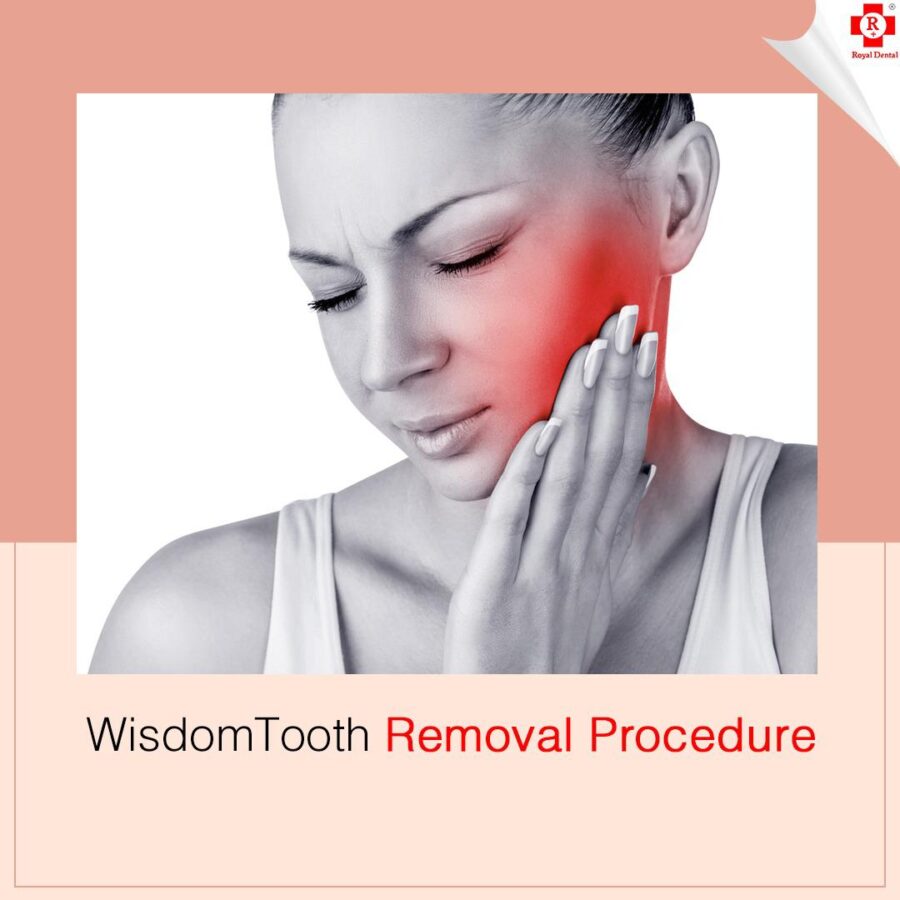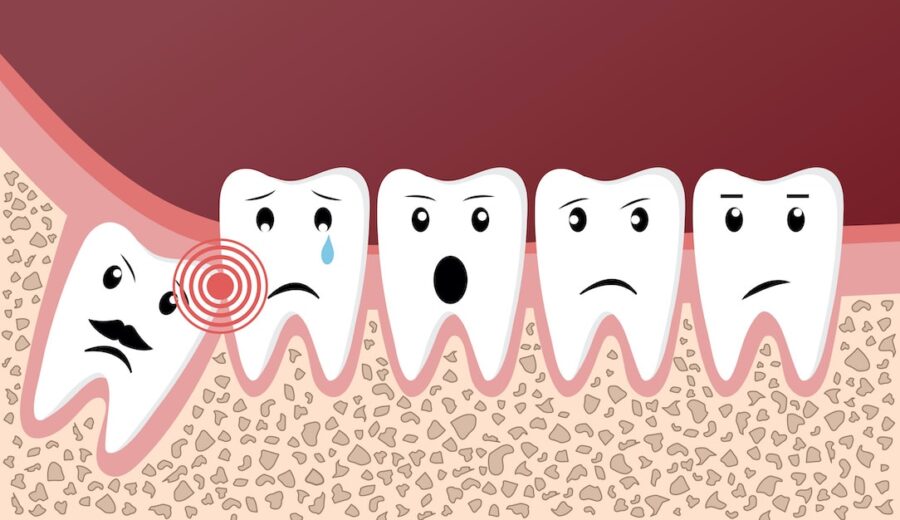When your second molars (or “wisdom teeth”) don’t have enough room to grow comfortably, they can become what we call impacted. Impacted wisdom teeth are essentially crowded or hidden behind other teeth and are unable to break through the gums. Fortunately, not everyone has issues with their wisdom teeth growing in, but for those who do, it can be incredibly painful and have lasting negative impacts on your oral health. Unfortunately, most people don’t realize their wisdom teeth are growing until they experience pain. Because of this, a lot of people need to get them removed in order to avoid needing future surgery. If you’re reading this article because you already have pain from impacted wisdom teeth and want to know how to stop the pain at night as soon as possible, keep reading!
Symptoms of impacted wisdom teeth
Pain when eating – Since the teeth are blocked and unable to break through the gums, eating can cause a lot of pain. Some people even experience bleeding and a lot of discomforts when eating certain foods.
Swelling and redness – As the infection and inflammation from impacted teeth spread, the gums and cheek near the jawline will often swell up and become red.

Tenderness and pressure – The gums near an impacted tooth will feel tender and sensitive. Sometimes the tooth will feel like it’s digging into the gums, too.
Bad breath – Infected gums can cause bad breath and an unpleasant smell coming from your mouth.
Why does it hurt so much to sleep with impacted teeth?
Since eating can be very painful, it’s natural to want to sleep off the pain. Unfortunately, it’s not that easy. Sleeping can be a huge source of pain for those dealing with impacted wisdom teeth. Not only do you have to deal with the pain of eating, but the pressure of the teeth in your gums can be unbearable, too. There are a couple of different reasons this happens. First, the top of the mouth is actually connected to the sinuses, which are on the roof of your mouth.
When you sleep, your mouth naturally relaxes and opens up, which can cause pressure to build in the sinuses, too. Second, the bacteria from the infected gums can enter the sinuses and cause an infection. It can get so bad that you even start to feel stuffy or have trouble breathing when you’re trying to sleep. It’s almost like having a sinus infection, but it’s actually coming from the top of your mouth.
3 ways to stop wisdom tooth pain at night
Take an anti-inflammatory medication: While you should always consult a dentist before taking any medication, you may want to look into anti-inflammatory medications like ibuprofen. While they’re usually used to reduce pain related to headaches, sprains, and other injuries, they can also be used to manage pain caused by impacted wisdom teeth.
Use a cold pack: A cold pack can do wonders for reducing the inflammation from infected gums and trapped or impacted teeth. You can either put a cold pack in the fridge and put it on your face or you can put a warm washcloth in the freezer for a few minutes to create a cold pack.

Use warm water and salt: The warm water and salt mixture can help soothe the gums and reduce the pain from impacts. Plus, it’s super easy to do. Just mix a teaspoon of salt with a cup of warm water, put the mixture in a bowl, and then put your face in the bowl.
Natural remedies to help stop wisdom tooth pain
Over-the-counter Ibuprofen for wisdom teeth pain: If everything else on this list has failed to stop the pain, one last option is to take an over-the-counter painkiller. Make sure to only take what’s recommended on the bottle, though, because taking too much can lead to serious side effects. Depending on the severity of your impacted wisdom teeth, you may need to see a dentist about getting them removed. If the dentist recommends taking painkillers, though, it’s best to avoid taking ibuprofen and look for acetaminophen instead.

Apply an Ice Pack: A cold pack can do wonders for reducing the inflammation from infected gums and trapped or impacted teeth. You can either put a cold pack in the fridge and put it on your face or you can put a warm washcloth in the freezer for a few minutes to create a cold pack. Once you have the cold pack, you can put it on the gum around your wisdom tooth. You can also put it on the cheek near the tooth to help reduce the swelling and pressure.
Saltwater Swish and Rinse: The warm water and salt mixture can help soothe the gums and reduce the pain from impacts. Plus, it’s super easy to do. Just mix a teaspoon of salt with a cup of warm water, put the mixture in a bowl, and then put your face in the bowl. Once the water has cooled down a bit, you can take the bowl out of your face and wipe the excess water away with a towel.
Conclusion
Wisdom teeth are important to our oral health, but that doesn’t mean they can’t cause some serious issues. If you think you might have impacted teeth, you should see a dentist. Even if you don’t have impacted teeth, you can still experience wisdom tooth pain whenever your teeth are growing in. This pain can be incredibly intense and even keep you up at night. When you’re dealing with impacted teeth and wisdom tooth pain, it can be extremely difficult to find a way to stop the pain. Fortunately, there are a lot of ways to help stop the pain at night when your teeth are growing in. Now that you know how to stop the pain, it’s time to put these tips into action.






